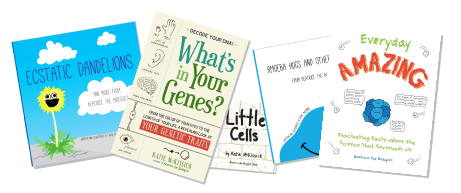Organic
What does it mean to be organic? Why is it such a big deal?
For a farm and its products to be “certified organic,” they must jump through many, many hoops. They have to fill out tons of paperwork, undergo on-site inspections, and adhere diligently to a list of requirements. The way I like to think of certified organic growers is that they farm like it’s 1492. (There is nothing specific about 1492–other than that’s when “Columbus sailed the ocean blue.” I just mean farming practices of a few hundred to a few thousand years ago.) Organic farmers grow their produce in step with nature, which means it is better for the earth and better for us.
Organic farming is better for the earth because they aren’t using any ‘cides–herbicides, insecticides, fungicides, etc. The suffix “cide” means “to kill.” Non-organic farms may use a variety of chemicals intended to kill weeds, bugs, or fungi that can make the plants sick. Here are the obvious problems with that:
- If you spray poison on plants so bugs won’t eat them, why would you want to eat them?
- If you spread poison on a large area of land, does it stay there? Where does it go?
Answers:
- To be honest, I’m not sure why anyone would want to eat something that has been sprayed with deadly chemicals. I sure don’t want to.
- The poisons sprayed on crops don’t just stay there. They are washed away into nearby water sources–creeks, rivers, lakes, and/or oceans. The insecticide that is meant to stop aphids from eating lettuce may wash down a river and kill bugs that are important to an ecosystem. Organic farming is better for the environment because it does not produce deadly runoff that can harm nearby wildlife.
With this information, don’t you think that everyone would want to eat organic all the time? Why do people buy produce that isn’t organic?
Here is the one and only downside of organic produce–it is more expensive. Money is the only thing I can think of that would make a person reluctant to buy organic.
Let’s say you go to the grocery store and see this:
Bananas $0.19
Organic bananas $0.50
“Hm, the organic bananas cost more. If I don’t know anything about how great organic farming is, and I don’t know that eating organic is better for me, why should I spend more money on it?”
 Exactly. And sadly, even if someone knows that organic is a better choice, they might not be able to spend the extra money on higher-quality produce. It is a constant struggle.
Exactly. And sadly, even if someone knows that organic is a better choice, they might not be able to spend the extra money on higher-quality produce. It is a constant struggle.
I don’t have a ton of money sitting in the bank, but I buy organic produce whenever I can. When I spend a few extra dollars on organic fruits and vegetables, I know that my money is going to support the eco-conscious farms that produced them. That makes me feel good, and eating great produce makes me feel even better.










